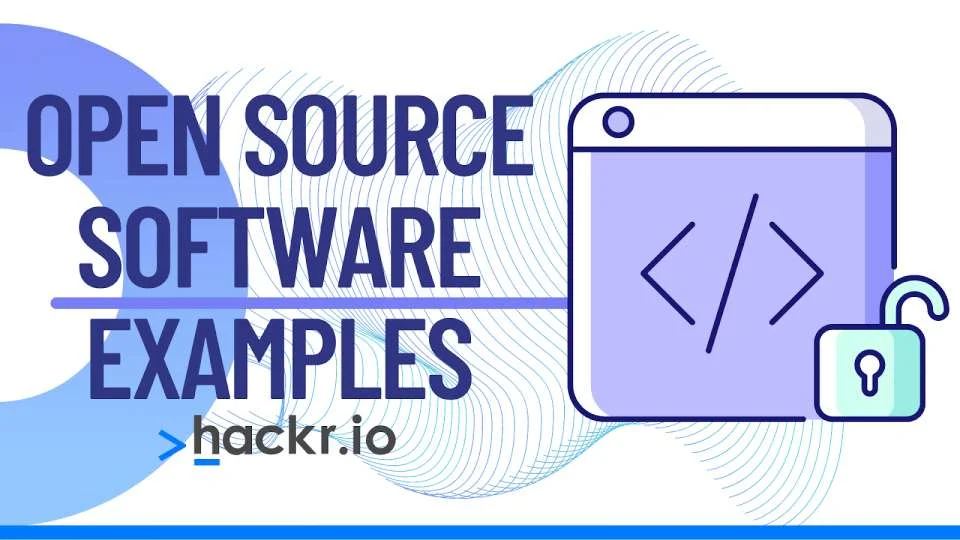Open Source Revolution: The Best Free Software for Developers in 2024 is transforming the way developers work, offering a wide range of high-quality, cost-free tools for various programming tasks. In this rapidly evolving landscape, open source software has become indispensable for developers looking to build, test, and deploy applications efficiently and effectively. From programming languages to development frameworks, open source tools provide the flexibility and customization options that developers need to stay competitive in the industry.
Developers are increasingly turning to open source solutions as they seek reliable and innovative tools to streamline their workflows. With the rise of cloud computing and containerization, the demand for open source software that supports these technologies has soared. The accessibility and collaborative nature of open source projects also appeal to developers, as they can contribute to and benefit from a global community of like-minded individuals. As the open source ecosystem continues to expand, developers in 2024 are presented with an unprecedented array of free software options to enhance their productivity and creativity.
The Evolution of Free Software
In recent years, there has been a significant shift in the software industry towards open source development. This has been driven by the increasing popularity of platforms such as GitHub, which has made it easier than ever for developers to collaborate on and contribute to open source projects. As a result, there has been a proliferation of high-quality free software tools and libraries that rival their proprietary counterparts in terms of functionality and performance.
Developers are now spoiled for choice when it comes to selecting free software for their projects, with a wide range of options available for everything from web development and mobile app development to machine learning and data analysis. This has democratized access to powerful tools and technologies, leveling the playing field for developers of all backgrounds and experience levels.
The Rise of Open Source Communities
One of the key drivers behind the success of free software has been the vibrant and collaborative communities that have formed around popular open source projects. These communities are made up of passionate developers who are dedicated to improving and maintaining the software, as well as helping and supporting other users. This has created a rich ecosystem of knowledge sharing and innovation, with developers freely sharing code, best practices, and troubleshooting tips.
Open source communities have also played a crucial role in driving the evolution of free software, with developers coming together to identify and address bugs, add new features, and ensure compatibility with the latest technologies. This collaborative approach has resulted in free software that is not only powerful and feature-rich, but also highly reliable and secure.
Essential Free Tools for Web Development
For web developers, there is a wealth of free software available to streamline the development process and enhance the functionality of their websites and web applications. This includes popular tools such as VS Code, a versatile and customizable code editor, as well as frameworks and libraries like React, Vue.js, and Bootstrap, which provide powerful features for building responsive and dynamic web interfaces.
Furthermore, free content management systems like WordPress and Drupal offer flexible and scalable solutions for creating and managing websites, while tools like GIMP and Inkscape provide robust options for graphic design and image editing, all without the hefty price tag of their proprietary counterparts.
Free Software for Mobile App Development
Mobile app developers can also take advantage of a range of free software tools and platforms to build, test, and deploy their applications. For example, Flutter and React Native offer powerful frameworks for building cross-platform mobile apps, while Android Studio provides a feature-rich and integrated development environment for building Android apps.
Additionally, developers can leverage free tools like Firebase for backend services, as well as testing and debugging tools like Genymotion and Stetho to ensure the quality and performance of their mobile applications. With these free resources, developers can create high-quality mobile apps without breaking the bank.
Open Source Tools for Machine Learning and Data Analysis
As the fields of machine learning and data analysis continue to grow in importance, so too does the availability of free software tools for developers working in these domains. Popular libraries such as TensorFlow, PyTorch, and scikit-learn provide powerful and flexible options for building and training machine learning models, while tools like Jupyter Notebook and Apache Spark offer rich environments for data analysis and processing.
Furthermore, open source platforms like RStudio and KNIME provide comprehensive solutions for data science workflows, from data cleaning and preprocessing to visualization and model deployment. With these free tools, developers can harness the power of machine learning and data analysis without the barrier of expensive software licenses.
Free Tools for Version Control and Collaboration
Version control and collaboration are essential aspects of modern software development, and there are several free tools available to support these processes. Git, for example, is a widely used and powerful version control system that enables developers to track changes, merge code, and collaborate with team members effectively.
Platforms like GitHub and GitLab provide hosting for Git repositories along with additional collaboration features such as issue tracking, project management, and continuous integration. These tools have become integral to the workflows of developers and have played a pivotal role in the widespread adoption of open source development practices.
Security and Privacy Tools for Developers
With the increasing emphasis on security and privacy in the digital world, developers have access to a variety of free tools to help secure their applications and protect user data. Open source tools like OWASP ZAP and Metasploit provide powerful options for vulnerability testing and penetration testing, while tools like GnuPG offer robust encryption and digital signing capabilities.
Furthermore, developers can leverage free security-focused libraries and frameworks, such as OpenSSL and Security Shepherd, to build secure and resilient applications. With these free resources, developers can prioritize security in their development process without incurring additional costs.
The Future of Free Software and Open Source Development
Looking ahead, the future of free software and open source development appears bright, with continued growth and innovation on the horizon. As more developers and organizations recognize the benefits of open source collaboration, we can expect to see an even greater proliferation of high-quality free software tools and libraries across a wide range of domains.
Furthermore, the open and collaborative nature of open source communities is likely to drive further advancements in software development practices, with a focus on transparency, inclusivity, and accessibility. This will continue to level the playing field for developers and empower them to create innovative solutions without the barrier of costly software licenses.
Open Source Revolution: The Best Free Software for Developers in 2024
| Software | Description |
|---|---|
| Linux | An open-source operating system that is widely used for development and server management. |
| Git | A distributed version control system for tracking changes in source code during software development. |
| VS Code | A lightweight but powerful source code editor which is developed by Microsoft. |
| Node.js | An open-source, cross-platform JavaScript runtime environment for server-side programming. |
| Docker | An open platform for developing, shipping, and running applications in containers. |



